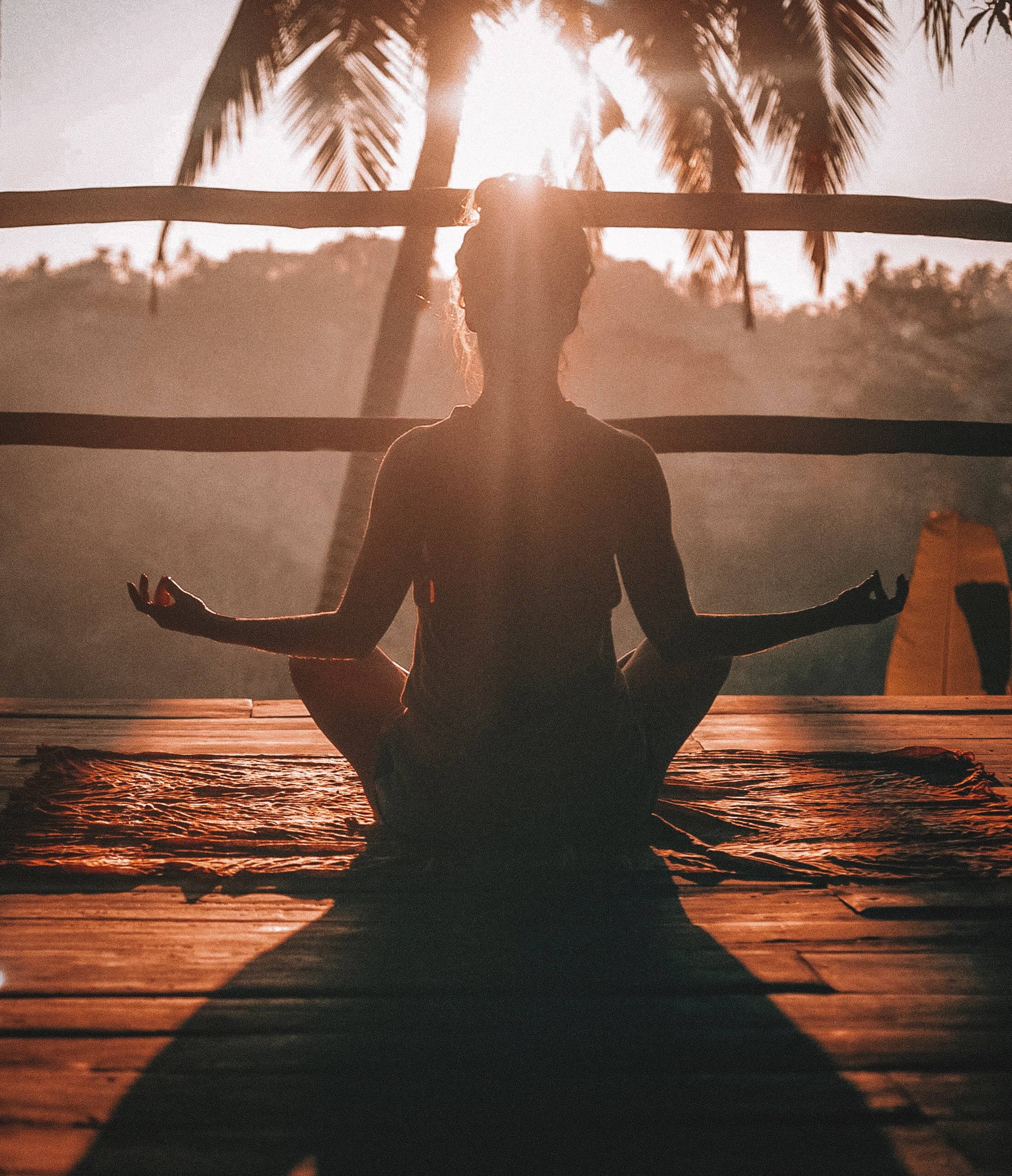Meditation is good for your overall health. For many, this is no surprise. One in seven Americans meditate, according to the latest National Health Interview Survey (NHIS). And there are good reasons why! Research shows that it actually helps to alleviate ailments from Irritable Bowel Syndrome and High Blood Pressure to Anxiety and Depression. A good reason to figure out how to start meditating, right?
What Is Meditation?
Meditation is a mind-body exercise that aims to connect you with your body, increase your awareness about what is transpiring around you, and create a sense of calm and connectedness. Numerous scientific studies demonstrate meditation improves psychological stress, anxiety, and depression. That’s great news!
How To Start Meditating
Most meditation practices involve being in a place free of distraction and without physical discomfort. This can be sitting, standing, lying down, or even walking, biking, or doing some other activity that doesn’t require a lot of sustained attention. What makes it meditation is a curious attitude and focusing your attention on your breath, your body, stillness, or a specific mantra. There are many variations, including spiritual contemplation, loving kindness, self-compassion, body scan, breath work, mindfulness, visualization, thought awareness including journaling, movement, and guided meditation.
Shopping For Meditation?
You do not need any “gear” to meditate. You’re entirely welcome to use a meditation pillow. There are some great ones out there. If you have a pillow or designated place to meditate, it may help you get into the mood for it just like putting on your workout clothes can help you get ready psychologically to work out. But, sitting on a cushion is not a requirement for meditation and not all meditation requires sitting with your legs crossed!
Meditation is About Really Noticing What’s Going On Around You
Each type of meditation aims to increase awareness of one’s emotions, thoughts and feelings. With a strong meditation practice, you can become more in touch with how you feel and learn to minimize negative responses to your thoughts and feelings. For someone struggling with anxiety, meditation trains the brain to reset itself and distance oneself from the impact of racing or unhelpful thoughts. The goal is not to avoid the thoughts, but rather to observe them and not get attached to the thoughts.
While meditating, you don’t judge or actively engage with your experience, you just notice it. Whatever sound you hear, sensation you feel, or thought you have, you allow it to happen and then let it go naturally.
For example, you might hear a leaf blower outside your window, notice that your feet are cozy in their warm socks, or think about what you need to buy at the grocery store. All of this is normal. Rather than resisting, actively ignoring, or reacting to what’s happening, you simply experience it without getting attached to it. So you’d try not to try to let yourself get annoyed with the landscape crew, wonder if you should get a pair of socks for your best friend for her birthday, or tell yourself you should have gone to the store yesterday. The goal is to calm your mind by bringing your thoughts into the moment rather than ruminating about the past, worrying about the future, or bringing the focus to something outside yourself.
Meditation Can Help You Feel Better About Yourself and Your Life
Through meditation, you are training your brain to better respond to thoughts and emotions. You learn to just notice them, without attachment. Just like you practice non-attachment to the sounds, sensations, and thoughts described above, you can practice not getting attached to thoughts and emotions when they come up throughout your day. That way, the next time you have a thought about yourself, like “I’m not good enough,” or a feeling such as embarrassment, it might be easier to allow those thoughts and feelings to pass without getting overwhelmed, judging yourself, or needing to turn to food or some other coping mechanism as an escape.
Meditation can help us feel more in control of how we allow our thoughts to make us feel. The result is more freedom to determine which thoughts we allow ourselves to believe, the meaning we place on the resulting emotions, and how we choose to show up in our lives and in the world. By meditating, you will ultimately live in closer alignment with your goals and what you value.
Resources To Start Meditating
There are many resources to explore each type of meditation, whether online, through apps, in books or in classes. Start with one that resonates with you and if it doesn’t suit you, try another type. The choice of how to meditate – and how much time you want to spend meditating – is very individual. I recommend that whatever you try to help you figure out how to start meditating, be patient and open to whatever you experience.
If you want to meditate, but seek additional support, I encourage you to give yourself the gift of an individual coaching session with me, where I’ll guide you through the process and have you meditating in no time.


+ show Comments
- Hide Comments
add a comment